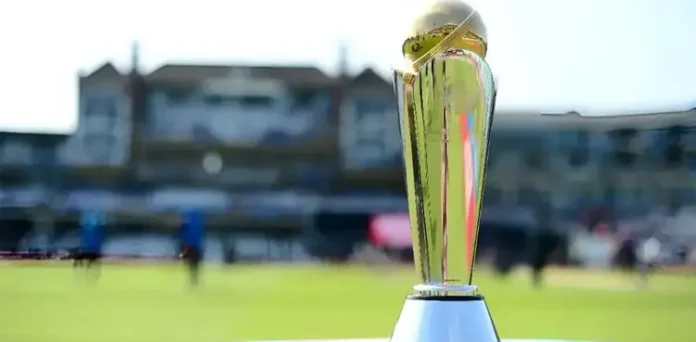Table of Contents
Introduction
The ICC Champions Trophy, often hailed as the “Mini World Cup,” holds a unique place in the annals of cricket history. As one of the most prestigious international cricket tournaments, it brought together the top-ranked teams from around the globe to compete for glory in a high-octane, fast-paced format. Over the years, the tournament became a crucible for cricketing excellence, delivering unforgettable matches and fostering rivalries that captivated millions of fans worldwide.
First introduced in 1998, the ICC Champions Trophy was designed as a shorter, more intense counterpart to the ICC Cricket World Cup. It offered a chance for cricket’s best teams to battle it out in a compact schedule, making it a highly anticipated event on the cricket calendar. With its thrilling knockout matches, star-studded lineups, and dramatic finals, the tournament earned a reputation as a stage where legends were born, rivalries ignited, and cricket’s global appeal soared.
The focus keyword for this article, “ICC Champions Trophy,” encapsulates not only the tournament’s significance but also its enduring legacy. By consistently delivering high-stakes cricket and iconic moments, he played a pivotal role in shaping the modern game.
The tournament also served as a platform for underdog teams to challenge cricketing giants, giving fans heart-stopping games that demonstrated the unpredictable beauty of cricket. From South Africa’s maiden ICC title in 1998 to Pakistan’s emphatic victory in 2017, the Champions Trophy became synonymous with unyielding passion and the spirit of competition.
In this article, we’ll take a comprehensive journey through the history of the ICC Champions Trophy—exploring its origins, milestones, legendary performances, and lasting impact on cricket. You’re a die-hard cricket fan or a casual follower of the game, this detailed account of the tournament will rekindle your love for cricket and its storied past.
1. Explore Origins of the ICC Champions Trophy

The ICC Champions Trophy, originally known as the ICC KnockOut, was conceptualized in 1998 by the International Cricket Council (ICC) with a clear mission: to promote cricket on a global scale and provide emerging cricket nations with an opportunity to shine on the world stage . This innovative idea aimed to complement the ICC Cricket World Cup, offering a shorter, high-intensity tournament that would engage audiences with its dynamic format and competitive spirit.
The first edition was hosted in Dhaka, Bangladesh, marking a significant milestone for cricket’s expansion beyond traditional powerhouses. As one of the first major ICC tournaments held in a developing cricket nation, it showcased the sport’s potential to transcend boundaries and unite fans worldwide. Aptly named the “Mini World Cup,” the tournament featured a knockout structure that ensured every game was crucial, with no room for error—a format that added to its allure.
The Vision Behind the Tournament
The ICC Champions Trophy was designed to achieve two key objectives:
- Expand Cricket’s Global Reach: By hosting the event in countries like Bangladesh and Kenya during its early years, the ICC aimed to foster cricket’s growth in non-traditional regions.
- Showcase Top Teams in a Compact Format: Unlike the longer ICC Cricket World Cup, the Champions Trophy provided a condensed yet thrilling tournament structure, catering to fans who craved intense, high-stakes action.
The focus keyword “ICC Champions Trophy” began to gain traction as the tournament quickly garnered attention for its competitiveness and unpredictability. With fewer teams and a knockout-style format, every match held the potential for an upset—a stark contrast to the lengthy league stages of other global tournaments.
The Inaugural ICC KnockOut 1998
The maiden edition in Dhaka was a resounding success. Featuring all Test-playing nations, it captured the imagination of fans with its high-octane clashes. South Africa emerged victorious, securing their first ICC trophy by defeating the West Indies in a thrilling final. The event not only cemented the Proteas’ place among cricket’s elite but also established the Champions Trophy as a tournament where glory could be seized by any team willing to rise to the occasion.
Rebranding and Evolution
In 2002, the tournament was rebranded as the ICC Champions Trophy, reflecting its growing stature and prestige. This evolution marked the beginning of a more structured competition, with formats gradually shifting to include round-robin stages and group play. As the tournament grew in prominence, it attracted the sport’s biggest stars and set the stage for unforgettable performances.
By creating an arena for cricket’s best teams to clash in high-stakes encounters, the ICC Champions Trophy not only fulfilled its original vision but also left an indelible mark on cricket’s global narrative. It laid the groundwork for showcasing the game’s diversity and unpredictability, a legacy that continues to resonate with fans even after its conclusion in 2017.
2. Explore ICC Champions Trophy Over the Years
The ICC Champions Trophy has a storied history filled with thrilling encounters, unforgettable performances, and moments that have etched themselves into cricketing folklore. From its inception in 1998 as the ICC KnockOut to its final edition in 2017, this tournament became a showcase of top-level cricket where every match was a high-stakes battle.
Each edition of the Champions Trophy carried its own flavor, shaped by the host nation, participating teams, and the cricketing heroes who stepped up in crucial moments. Let’s take a detailed look at how this iconic tournament unfolded over the years, evolving into one of the most eagerly anticipated events in international cricket.
1998 – The Inaugural ICC KnockOut (Dhaka, Bangladesh)
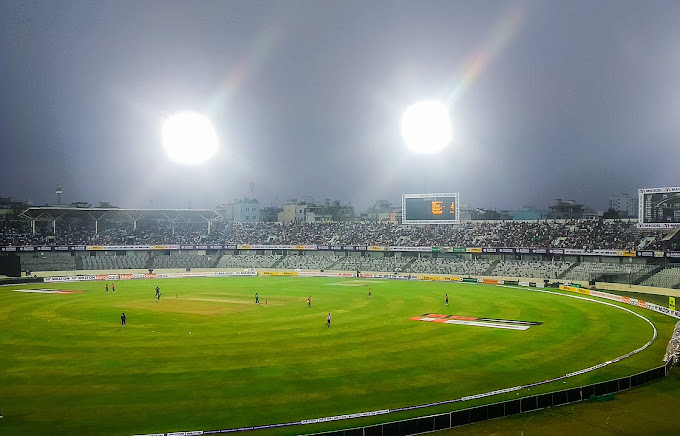
The first-ever ICC Champions Trophy—then called the ICC KnockOut—was held in Dhaka, a landmark moment for cricket in South Asia. Featuring all Test-playing nations in a straight knockout format, the tournament was compact yet electrifying. South Africa claimed their maiden ICC title by defeating the West Indies in a tense final, with Jacques Kallis delivering a stellar all-around performance. This edition not only crowned a deserving champion but also set the tone for the Champions Trophy’s reputation as a stage for unforgettable cricket.
2000 – ICC KnockOut (Nairobi, Kenya)

Kenya played host to the second edition, a testament to the ICC’s mission to expand the sport’s reach. In a tournament marked by upsets and exceptional cricket, New Zealand emerged as champions, defeating India in a thrilling final. Chris Cairns’ match-winning century remains one of the most iconic moments in the tournament’s history, exemplifying the Champions Trophy’s knack for producing memorable performances.
2002 – ICC Champions Trophy (Sri Lanka)
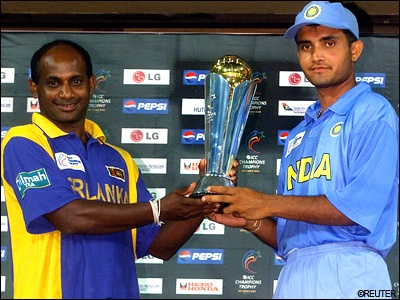
Rebranded as the ICC Champions Trophy, the 2002 edition was co-hosted by Sri Lanka. The final between India and Sri Lanka became infamous for its rain disruptions, leading to the trophy being shared. Despite the anticlimactic conclusion, this edition featured electrifying cricket, with standout performances by legends like Virender Sehwag and Sanath Jayasuriya.
2004 – ICC Champions Trophy (England)

This edition marked a shift to a group-stage format, allowing teams more opportunities to prove their mettle. West Indies, under Brian Lara’s leadership, claimed an emotional victory by defeating England in a dramatic final. Their last-over win in fading light remains one of the most gripping finishes in cricket history.
2006 – ICC Champions Trophy (India)
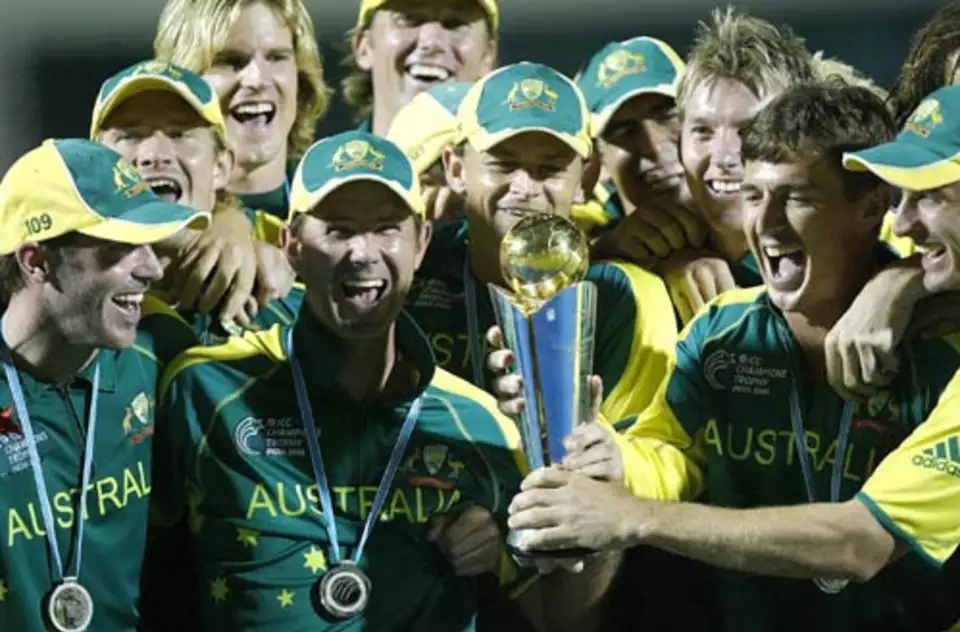
Held in India, the 2006 tournament was a celebration of cricket’s global appeal. It also signaled the rise of Australia as an unstoppable force in the Champions Trophy. Led by Ricky Ponting, the Aussies claimed their first title by defeating the West Indies in the final. Shane Watson’s all-around brilliance made him a standout performer of the tournament.
2009 – ICC Champions Trophy (South Africa)
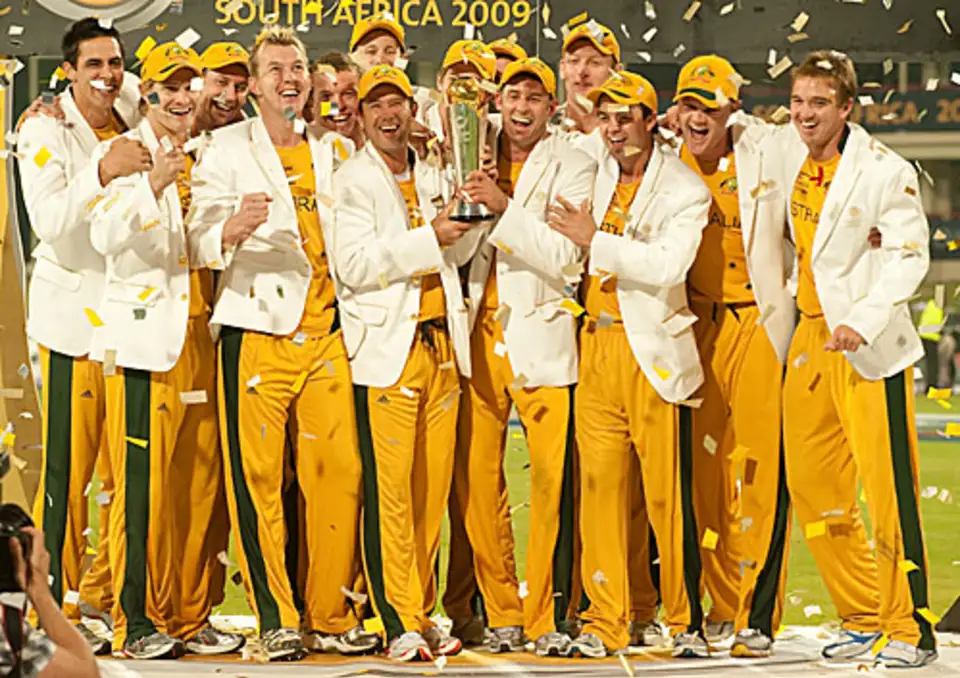
Returning to its birthplace, the Champions Trophy in South Africa introduced a condensed schedule that heightened the intensity of matches. Australia’s dominance continued as they became the first team to win back-to-back titles, defeating New Zealand in a clinical final. Ricky Ponting’s leadership and the team’s formidable balance of batting and bowling made them an unmatched side.
2013 – ICC Champions Trophy (England)
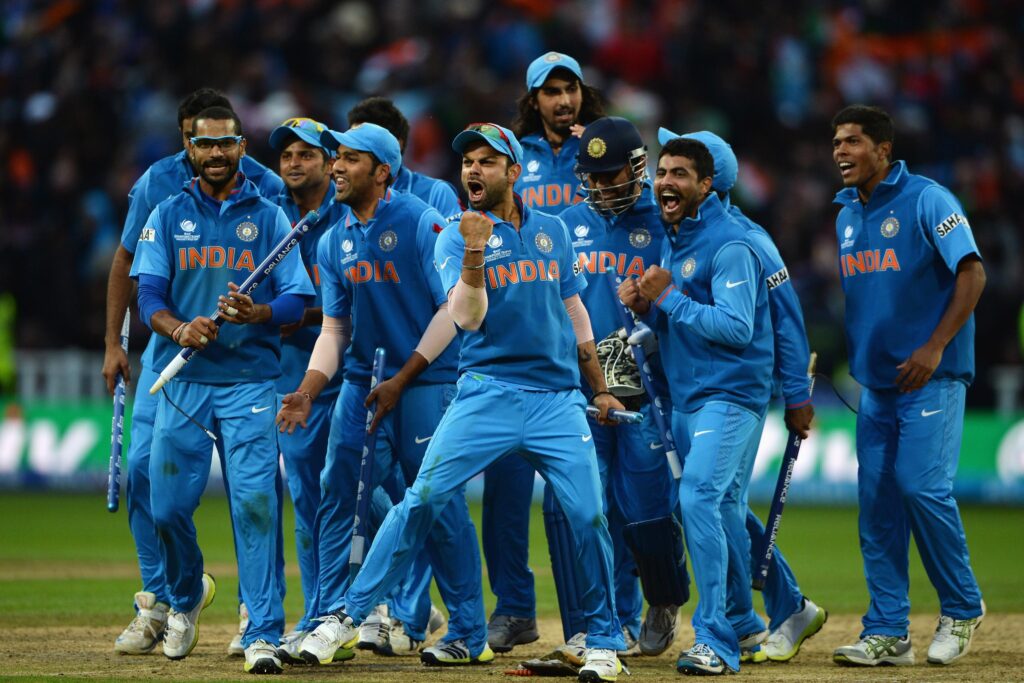
The 2013 edition is often regarded as one of the best in Champions Trophy history. India, under MS Dhoni’s captaincy, triumphed in a rain-affected final against England. Shikhar Dhawan emerged as the tournament’s leading run-scorer, while Ravindra Jadeja’s all-around prowess earned him the Player of the Tournament award. India’s unbeaten campaign showcased their adaptability and strength in all departments.
2017 – ICC Champions Trophy (England)
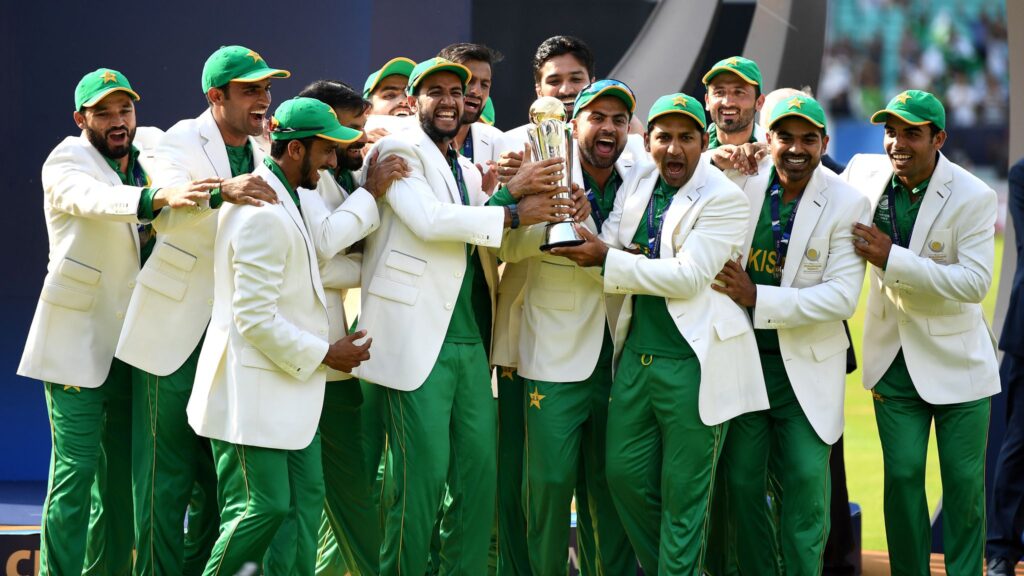
The final chapter of the ICC Champions Trophy unfolded in dramatic fashion. Pakistan, defying all odds, clinched their first-ever Champions Trophy title by defeating arch-rivals India in a high-stakes final. Fakhar Zaman’s scintillating century and Hasan Ali’s game-changing bowling made headlines as Pakistan’s young team stunned the cricketing world. The 2017 edition encapsulated the tournament’s unpredictable and exhilarating spirit, ending its legacy on a high note.
Key Takeaways from ICC Champions Trophy Over the Years
- A Stage for Iconic Moments: From Jacques Kallis’ all-round heroics in 1998 to Fakhar Zaman’s breakthrough century in 2017, the Champions Trophy consistently delivered unforgettable moments.
- Rivalries Rekindled: Whether it was India vs. Pakistan in 2017 or Australia’s dominance over England in 2009, the tournament became a battleground for fierce cricketing rivalries.
- Global Appeal: By hosting editions in nations like Bangladesh, Kenya, and South Africa, the tournament brought cricket to new audiences, cementing its role in globalizing the sport.
The ICC Champions Trophy wasn’t just a tournament ; it was a celebration of cricket at its finest. Its ability to combine unpredictability, star power, and global reach made it a beloved event for players and fans alike. As we journey through its history, the Champions Trophy reminds us of the enduring magic of cricket and its power to unite people across cultures.
3. Explore Key Records and Milestones
The ICC Champions Trophy was more than just a cricket tournament—it was a stage for remarkable feats, thrilling performances, and records that have become part of cricket’s rich legacy. Over its eight editions, the tournament brought out the best in players and teams, producing moments that will be cherished by fans forever. From staggering team performances to jaw-dropping individual displays, the Champions Trophy was a showcase of excellence.
Here, we explore some of the most significant records and milestones from the history of the ICC Champions Trophy, highlighting the players and teams who etched their names in the history books.
Highest Team Totals in the ICC Champions Trophy
The Champions Trophy was a haven for explosive batting performances. Teams used the shorter format to unleash aggressive strategies, and several matches saw massive totals that left fans awestruck.
Australia holds the record for one of the highest team scores in the tournament, amassing 359/2 against India in the 2009 edition. Ricky Ponting’s commanding century in this match exemplified Australia’s dominance.
India made headlines with their aggressive batting, scoring 331/7 against South Africa in the 2013 tournament, powered by Shikhar Dhawan’s majestic knock.
These high-scoring games showcased the thrilling potential of ODI cricket and cemented the Champions Trophy’s reputation for excitement.
Lowest Team Totals: When Bowling Dominated
While batting brilliance was often celebrated, the Champions Trophy also witnessed spectacular bowling displays that dismantled strong batting lineups:
- The United States (65 All Out): In a 2004 match against Australia, the USA posted the lowest total in Champions Trophy history, underlining the gap between emerging teams and cricketing powerhouses.
- Bangladesh (77 All Out): In the inaugural edition in 1998, New Zealand’s fiery bowling attack skittled Bangladesh for a mere 77, showing the unpredictability of knockout matches.
These moments highlighted the critical role bowlers played in shaping the tournament’s narrative.
Top Individual Performances
The ICC Champions Trophy gave cricket fans some of the most incredible individual performances in ODI history.
1. Centuries That Shone Bright
- Chris Cairns’ Heroics in 2000: His unbeaten 102 in the final against India secured New Zealand’s only ICC title to date, a knock remembered for its sheer resilience and class.
- Fakhar Zaman’s Century in 2017: The Pakistani opener’s 114 against India in the final turned the tide and gave Pakistan their first-ever Champions Trophy.
2. Bowling Masterclasses
- Shane Bond (2002): New Zealand’s pace maestro took a record-breaking 6/23 against Australia, showing off his lethal swing and speed.
- Hasan Ali (2017): Named Player of the Tournament, Ali’s consistent wickets, including a crucial three-wicket haul in the final, were key to Pakistan’s success.
Milestones by Legendary Players
Several cricketing legends left their mark on the Champions Trophy:
- Jacques Kallis (South Africa): The only player to score three centuries in the tournament’s history, Kallis was instrumental in South Africa’s title win in 1998.
- Shikhar Dhawan (India): Dhawan’s tally of 363 runs in the 2013 edition remains the highest for a single tournament, a testament to his consistency and dominance at the top order.
- MS Dhoni (India): The only captain to win all three ICC white-ball trophies (T20 World Cup, Cricket World Cup, and Champions Trophy). His calm leadership in 2013 ensured India’s unbeaten campaign.
Most Successful Teams
The Champions Trophy created fierce rivalries and showcased the dominance of some cricketing giants:
- Australia: With back-to-back titles in 2006 and 2009, they are the only team to win the Champions Trophy consecutively, epitomizing their era of dominance.
- India: Joint champions in 2002 and winners in 2013, India became synonymous with consistency in ICC tournaments.
- Pakistan: Their memorable triumph in 2017 was not only their first Champions Trophy win but also a testament to their resilience and talent on the big stage.
Why These Records Define the ICC Champions Trophy
The ICC Champions Trophy was a stage where greatness unfolded. The towering sixes, the fiery spells, and the game-changing performances became the hallmark of the tournament. Each record carries a story of passion, skill, and the unpredictable charm of cricket, elements that made this tournament a fan favorite.
As we reflect on these milestones, it’s clear that the Champions Trophy wasn’t just a tournament—it was a celebration of cricketing excellence. These records continue to inspire players and fans alike, keeping the legacy of the Champions Trophy alive in the hearts of cricket enthusiasts.
4. Explore The Legacy of the ICC Champions Trophy
The ICC Champions Trophy carved a unique place in cricket history, leaving a lasting legacy that resonates with fans, players, and the broader cricketing community. Although the tournament concluded with its final edition in 2017, its impact on the sport remains undeniable. It wasn’t just about winning a trophy—it was about showcasing the very best of cricket: high-stakes drama, remarkable individual performances, and a platform where legends were made.
The Champions Trophy stood apart as a thrilling spectacle, offering fans a fast-paced alternative to the longer ICC Cricket World Cup. Over its eight editions, it set new standards for competitive cricket, giving both established and emerging cricketing nations the opportunity to shine on a global stage.
A Tournament of Rivalries and Unity
One of the most remarkable aspects of the ICC Champions Trophy was its ability to bring together the world’s best teams to battle in a condensed, high-pressure environment. This format heightened rivalries—India vs. Pakistan, Australia vs. England, and South Africa vs. New Zealand—giving fans some of the most memorable clashes in cricket history.
At the same time, the Champions Trophy also highlighted cricket’s ability to unite nations. It created a sense of global camaraderie, as host countries like Bangladesh, Kenya, and South Africa welcomed the world to their cricketing grounds. These moments highlighted the sport’s universal appeal, showing its power to connect cultures and break barriers.
A Platform for Emerging Stars
The ICC Champions Trophy served as a stage where young players announced themselves to the world. Rising stars like Hasan Ali in 2017 and Shikhar Dhawan in 2013 used the tournament to cement their places in cricket’s elite. Similarly, lesser-known teams and players often used the Champions Trophy as an opportunity to challenge cricketing giants and their mark.
The tournament also allowed emerging cricket nations to gain invaluable experience and exposure. Hosting editions in non-traditional cricketing powerhouses like Kenya and Bangladesh helped elevate the sport’s profile in those regions, proving that the Champions Trophy wasn’t just about competition—it was about fostering cricket’s growth globally.
A Celebration of ODI Cricket
While T20 cricket emerged in popularity during the 2000s, the ICC Champions Trophy held its ground as a vital celebration of the 50-over format. Its fast-paced, knockout structure provided a middle ground for fans who loved the strategy of ODI cricket but wanted the quick resolution of T20 matches.
The Champions Trophy reminded fans why ODI cricket remains special. With games often producing cliffhangers, dramatic chases, and breathtaking finishes, the tournament kept the format relevant and exciting, even as cricket evolved.
The Emotional Farewell of 2017
The final edition in 2017 offered a fitting farewell to this beloved tournament. Pakistan’s historic triumph over India in the final wasn’t just a victory for their team—it was a moment that captured the essence of the Champions Trophy: unpredictability, passion, and cricket at its finest.
For fans, the 2017 edition was bittersweet. While it delivered an unforgettable conclusion to the tournament’s history, it also marked the end of an era. The decision to discontinue the Champions Trophy left a void in the cricketing calendar, sparking conversations about its significance and calls for its revival.
Why the ICC Champions Trophy Still Matters
Even though the ICC Champions Trophy is no longer played, its legacy continues to influence cricket in profound ways:
- Memories That Last Forever: From Jacques Kallis’ brilliance in 1998 to Fakhar Zaman’s heroics in 2017, the tournament provided iconic moments that remain etched in the hearts of fans.
- Lessons for Modern Cricket: The success of the Champions Trophy demonstrated the appeal of compact, high-stakes tournaments—a lesson reflected in the ICC’s plans for the evolving cricketing landscape.
- Inspiration for Future Tournaments: While the T20 World Cup has gained prominence, the format of the Champions Trophy offers a blueprint for creating engaging, competitive events that captivate audiences.
The Champions Trophy’s Enduring Legacy
The ICC Champions Trophy wasn’t just a tournament—it was an event that celebrated cricket’s spirit, diversity, and unpredictability. It gave fans moments of joy, heartbreak, and exhilaration, creating memories that stand the test of time. For players, it was a stage to perform under pressure and earn a place in history.
The decision to discontinue the tournament may have closed a chapter, but the legacy of the ICC Champions Trophy continues to thrive in the hearts of fans and the lore of cricket. It serves as a reminder of why we love the game: the rivalries, the drama, and the stories that unite us in our passion for cricket.
While the Champions Trophy may no longer grace the cricketing calendar, its spirit lives on as a timeless celebration of the beautiful game.
5. Explore Controversies and Criticisms
The ICC Champions Trophy was celebrated for its high-stakes drama and thrilling matches, but like any major international tournament, it wasn’t immune to controversies and criticisms. Over the years, the tournament faced scrutiny over various issues, from format debates and scheduling challenges to high-profile match incidents. These controversies, while sometimes divisive, added another layer of intrigue to the tournament’s history and showcased the complexities of managing a global cricket event.
1. Criticism Over Format Changes
One of the most persistent criticisms of the ICC Champions Trophy was the frequent changes to its format.
- The Knockout Format (1998–2000): While the original knockout structure was thrilling, it was also unforgiving. Teams could be eliminated after just one match, leaving fans and players feeling shortchanged.
- Group Stage Introduced (2002 Onward): Subsequent editions included a group stage to give teams more games, but this often led to criticism that the tournament was becoming too similar to the ICC Cricket World Cup.
Fans and analysts argued that the tournament struggled to find its identity, frequently swinging between being a compact knockout event and a mini-World Cup. The lack of a consistent format led to debates about whether the tournament truly stood out in the crowded international cricket calendar .
2. Scheduling Conflicts
The timing of the ICC Champions Trophy often sparked controversy, particularly when it clashed with domestic leagues or other cricketing commitments.
- Clashes with the IPL: In the later years, as the Indian Premier League (IPL) gained prominence, the Champions Trophy sometimes struggled to draw the same level of attention. Critics argued that the ICC needed to better balance its global calendar to avoid overlapping schedules.
- Rain-Disrupted Matches: The tournament was also criticized for being scheduled during monsoon-prone months in certain host countries. The 2002 final between India and Sri Lanka, which ended in a shared trophy due to rain, remains one of the most controversial moments in Champions Trophy history.
3. The Decision to Discontinue the Tournament
One of the biggest controversies surrounding the ICC Champions Trophy was its abrupt discontinuation after the 2017 edition.
- The ICC announced that the tournament would be replaced by the ICC World Test Championship, citing a desire to focus on other formats.
- Fans and cricketing boards expressed disappointment, arguing that the Champions Trophy offered a unique and compact alternative to the World Cup and brought a different flavor to ODI cricket.
The decision was perceived by many as a commercial move, prioritizing newer formats over a tournament that had a dedicated fanbase and historical significance.
4. High-Profile Match Controversies
Like any high-stakes cricket tournament, the Champions Trophy was not without its on-field controversies.
The 2004 India vs. Pakistan Match: In this high-tension clash, there were heated exchanges between players, with tempers flaring under the pressure of a fierce rivalry.
- Umpiring Decisions: Several matches were marred by contentious umpiring decisions, which often led to debates about the use of technology and the Decision Review System (DRS), which was not always available in early editions of the tournament.
5. Questioning Its Relevance
Critics occasionally questioned the relevance of the ICC Champions Trophy, especially as the ICC expanded its calendar to include multiple T20 tournaments.
- Detractors argued that the Champions Trophy overlapped too much with the ODI World Cup, offering little differentiation in terms of format or stakes.
- Others believed that the rise of T20 cricket diminished the audience’s appetite for an additional ODI tournament.
These arguments, while valid to some extent, ignored the Champions Trophy’s unique charm—a shorter, action-packed event that delivered some of the most exciting cricketing moments.
6. Match-Fixing Allegations
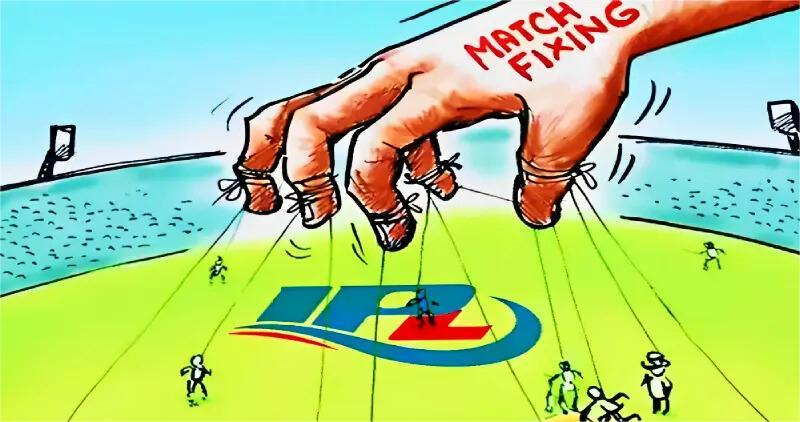
While the ICC Champions Trophy itself was never at the center of a major match-fixing scandal, the shadow of corruption loomed over certain games.
- Allegations of spot-fixing during the 2009 edition led to increased scrutiny of players’ actions, although no substantial evidence emerged.
- Such incidents reinforced the need for stricter anti-corruption measures in ICC tournaments, which the governing body worked to implement over time.
Balancing Criticism with Legacy
While the ICC Champions Trophy faced its fair share of controversies, these challenges did not overshadow its contributions to cricket. Instead, they highlighted the complexities of managing a global tournament in a sport as dynamic and passionate as cricket.
Criticism over format and scheduling often stemmed from the ICC’s efforts ts to adapt the tournament to evolving cricket landscapes. Match controversies, meanwhile, underscored the high-stakes environment that made the Champions Trophy such a captivating event.
A Legacy That Stands Strong
Despite its controversies, the ICC Champions Trophy remains a cherished chapter in cricket history. Its thrilling matches, iconic moments, and ability to bring together the best teams ensured its place in the hearts of fans. Even as the cricketing world debates its relevance and future, the tournament’s legacy endures—a testament to its unique charm and significance.
6. Explore The End of an Era: ICC Champions Trophy Post-2017
The ICC Champions Trophy, which spanned nearly two decades, concluded with its eighth and final edition in 2017. For fans and players alike, the decision to discontinue the tournament marked the end of an era. It was a bittersweet farewell to an event that had delivered some of cricket’s most thrilling moments. The final chapter of the Champions Trophy may have been written, but its legacy continues to resonate in the cricketing world.
The Curtain Falls in 2017
The 2017 edition, hosted in England, turned out to be a spectacular swan song for the ICC Champions Trophy. In a dramatic finale, Pakistan stunned India to win their first-ever Champions Trophy title, solidifying their reputation as a team capable of rising to the occasion. Fakhar Zaman’s stunning century and Hasan Ali’s inspired bowling ensured that the tournament ended with a match for the ages.
For many, the 2017 edition was a reminder of why the Champions Trophy had become such a beloved event. It featured high-stakes matches, unpredictable outcomes, and unforgettable moments that epitomized the tournament’s charm.
Why Was the ICC Champions Trophy Discontinued?
Despite its success, the ICC Champions Trophy was officially replaced by the ICC World Test Championship, a decision that drew mixed reactions from fans and cricketing boards. The reasoning behind this shift stemmed from several factors:
- Focus on Test Cricket: The ICC sought to revitalize Test cricket, the oldest and most traditional format of the game. The introduction of the World Test Championship aimed to provide context and significance to bilateral Test series, ensuring that the longest format remained relevant in the modern era.
- Rise of T20 Cricket: As T20 cricket gained immense popularity through events like the ICC T20 World Cup and domestic leagues like the IPL, the calendar became increasingly crowded. The ICC prioritized shorter formats to cater to changing audience preferences and commercial interests.
- Similarity to the ODI World Cup: Critics often argued that the Champions Trophy overlapped too much with the 50-over World Cup. With both tournaments featuring the same teams and similar formats, the ICC faced pressure to diversify its global events portfolio.
- Scheduling Challenges: The ICC Champions Trophy required a tight window in an already packed international cricket calendar. Balancing it alongside bilateral series, Test cricket, and franchise leagues became increasingly difficult.
The Impact of Its Absence
The decision to discontinue the ICC Champions Trophy left a void in the cricketing calendar, sparking debates about whether it was the right move.
- Loss of a Unique Event: Fans mourned the loss of a tournament that offered a faster-paced, high-stakes alternative to the ODI World Cup. The Champions Trophy’s condensed format and knockout-style matches made it a thrilling spectacle that could be completed in just a few weeks.
- Fewer Opportunities for Emerging Nations: For teams like Kenya, Bangladesh, and Zimbabwe, the Champions Trophy had provided a platform to compete against the best and gain valuable experience. Its absence limited opportunities for such teams to shine on a global stage.
- Shift in Focus to T20 and Test Formats: The ICC’s emphasis on the World Test Championship and the expansion of T20 leagues reflected cricket’s evolving priorities. However, many fans argued that the Champions Trophy offered a balance between the fast-paced excitement of T20 cricket and the strategic depth of ODIs.
Calls for a Revival
Even years after its discontinuation, the ICC Champions Trophy continues to enjoy a loyal fanbase. Several cricketing boards and players have called for its revival, citing its unique appeal and the gap it left in the calendar.
In 2021, the ICC announced plans to bring back the Champions Trophy in 2025, to be hosted by Pakistan. The news sparked excitement among fans and marked a potential return of this much-loved tournament. The revival reflects the enduring allure of the Champions Trophy and its significance in cricket’s history.
What the Future Holds
As the cricketing world evolves, the legacy of the ICC Champions Trophy serves as a reminder of what made the game so special: its unpredictability, its global appeal, and its ability to bring people together. Whether the tournament remains a cherished memory or reclaims its place on the calendar, its influence will continue to shape cricket’s narrative.
The Champions Trophy may have ended its run in 2017, but its spirit lives on in the hearts of fans. As we look to the future, the prospect of its revival in 2025 offers a glimmer of hope that this remarkable tournament can once again showcase the very best of cricket.
7. Explore Conclusion
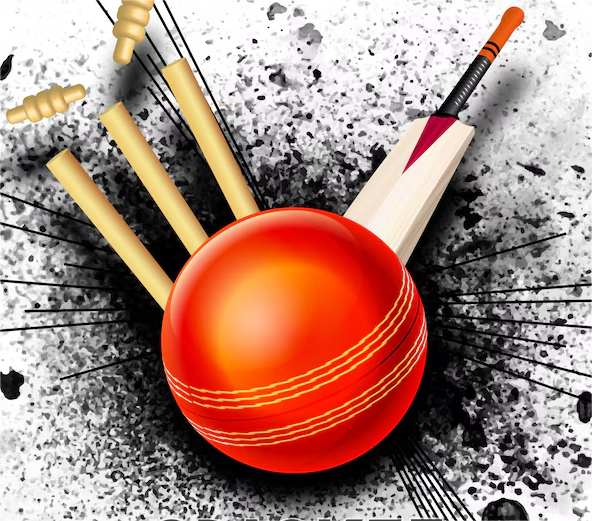
The ICC Champions Trophy was more than just a cricket tournament—it was a celebration of the sport’s vibrancy, unpredictability, and global appeal. Over its eight editions, it became a cornerstone of international cricket, offering fans thrilling matches, iconic moments, and a showcase of the world’s finest talent. Its compact format, high-stakes nature, and ability to unite cricket lovers worldwide made it a truly unique event.
Although its journey ended in 2017, the legacy of the Champions Trophy remains alive, etched in the memories of fans and players alike. Its role in shaping cricket’s modern narrative—by balancing tradition with innovation and providing opportunities for emerging nations—cements its place as one of the most cherished tournaments in cricket history.
A Tournament of Unforgettable Moments
From the inaugural edition in 1998, where South Africa lifted their first ICC trophy, to Pakistan’s historic victory in 2017, the Champions Trophy delivered moments that will forever be remembered. These stories of triumph, resilience, and passion are what made the tournament so special.
It also provided a platform for legends to shine and for young players to announce themselves on the world stage. The tournament wasn’t just about winning; it was about creating memories, inspiring the next generation, and celebrating the spirit of cricket.
A Complex Yet Cherished Legacy
While the Champions Trophy faced its share of criticism—ranging from format debates to scheduling challenges—it stood tall as a testament to the charm of ODI cricket. Its ability to strike a balance between tradition and modernity, along with its focus on competitive cricket, ensured that it remained a fan favorite.
The decision to discontinue the tournament sparked debates about its relevance, but these discussions only highlighted its significance in the cricketing world. The ICC’s announcement to revive the Champions Trophy in 2025 is a testament to its enduring popularity and the demand for its return.
The Spirit of the ICC Champions Trophy Lives On
Even in its absence, the ICC Champions Trophy has left a lasting impact. Its emphasis on quality over quantity, the drama of knockout matches, and the chance for emerging nations to challenge cricketing giants are lessons that continue to influence modern tournaments.
For fans, the Champions Trophy represents a golden chapter in cricket’s history—a time when the world’s best teams competed in a concise, high-intensity format that always delivered excitement. It was a tournament that celebrated the very best of the game, leaving a legacy that inspires players and fans alike.
Looking Ahead: Hope for a Revival
As cricket evolves, the demand for tournaments like the Champions Trophy remains strong. With its revival set for 2025, hosted by Pakistan, fans can look forward to a new chapter in the tournament’s storied history. The prospect of seeing the world’s top teams competing once again under the banner of the Champions Trophy is an exciting one, promising to reignite the magic that made it so beloved.


